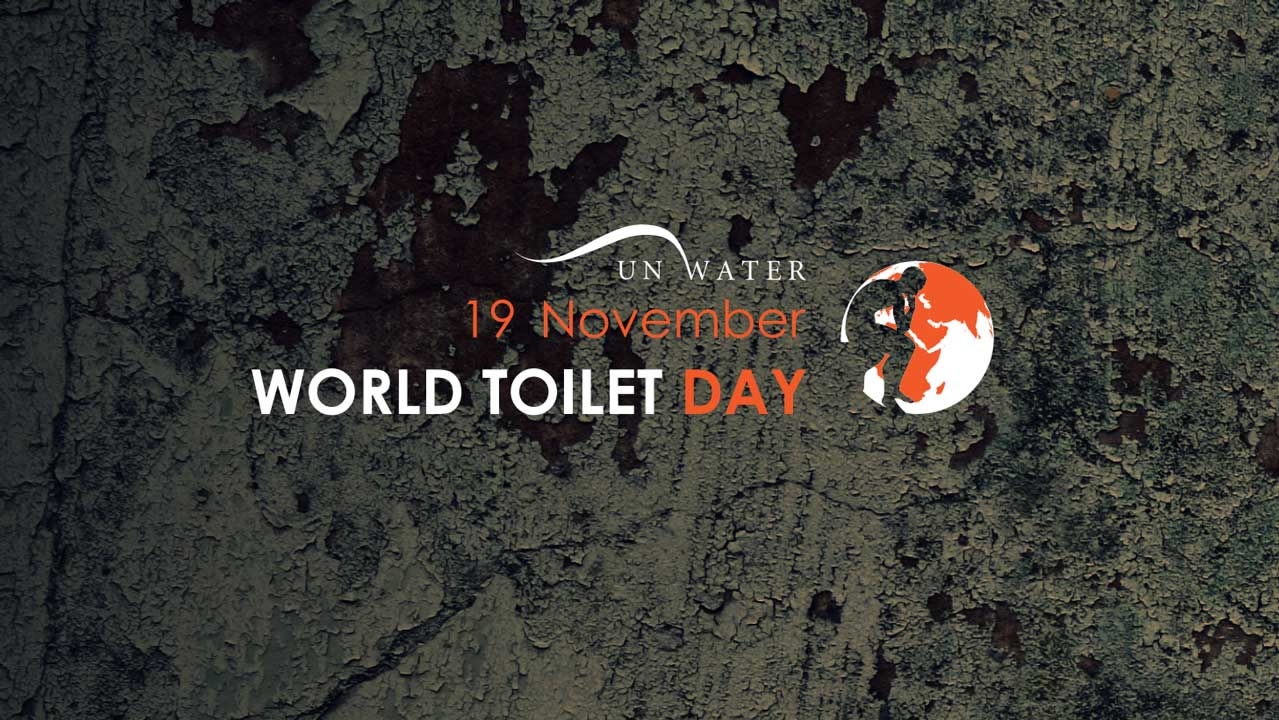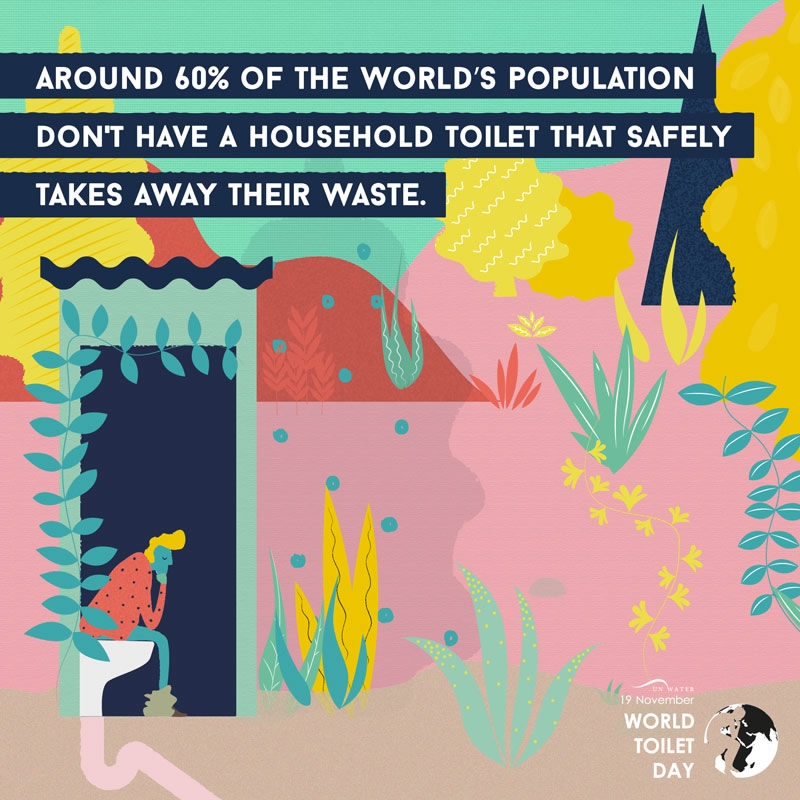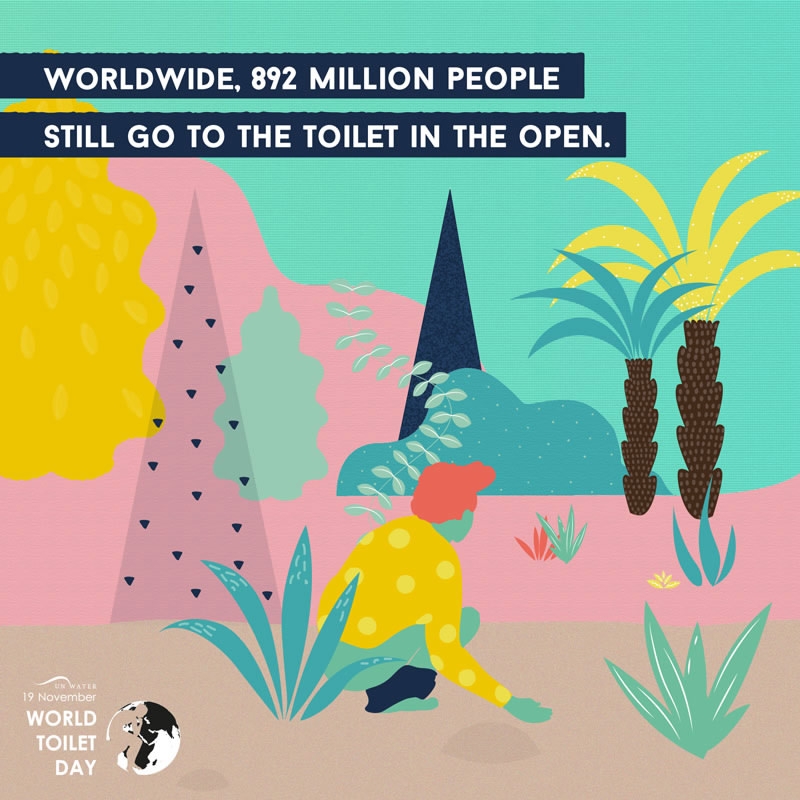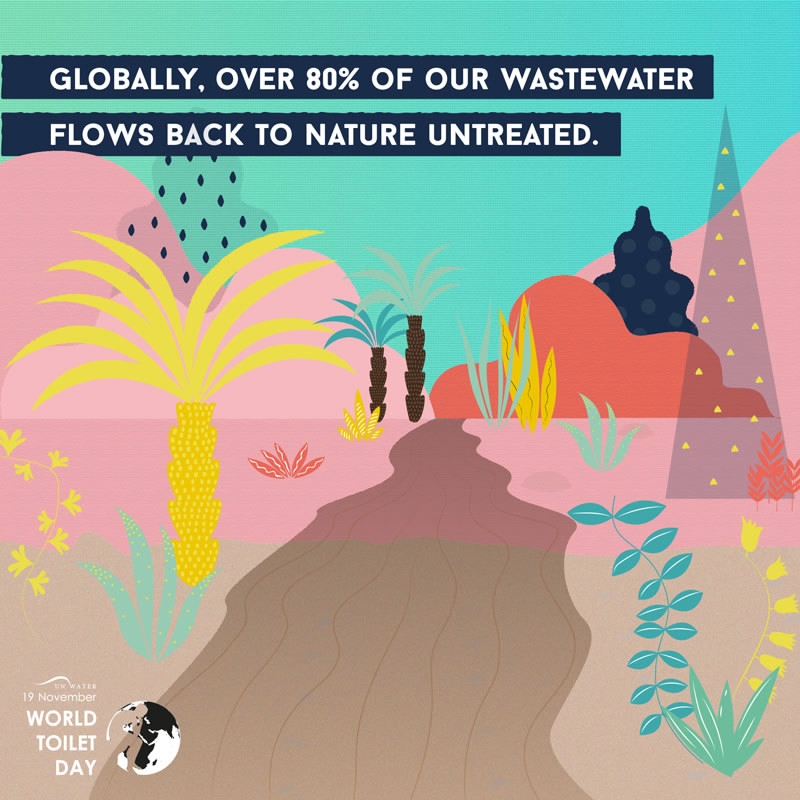
Toilet
17:13, 19-Nov-2017
Worldwide, 60% of people don’t have a safe toilet – UN
By Gong Zhe

The United Nations (UN) is asking the world to pay attention to toilet wastewater treatment on November 19, World Toilet Day.
The UN called the situation a "global sanitation crisis", citing the following facts:

UN Picture
UN Picture

UN Picture
UN Picture

UN Picture
UN Picture
Inadequate toilets and poor bathroom practices are often in the news in developing countries like China and India. In the eastern Chinese province Shandong, a hotel cleaner was criticized after being filmed cleaning a toilet with a guest’s towel.
And a Bollywood movie called "Toilet: A Love Story" was released in August, highlighting the lack of toilets in India.
The UN defined how excrement should be processed, in four steps:
Containment. Excrement must be deposited into a hygienic toilet and stored in a sealed pit or tank, separated from human contact;
Transport. Pipes or latrine emptying services must move the excrement to the treatment stage;
Treatment. Excrement must be processed into treated wastewater and waste products that can be safely returned to the environment;
Disposal or reuse. Safely treated excrement can be used for energy generation or as fertilizer in food production.
A lot of countries have poured massive resources into improving sanitation. China’s “toilet revolution” is gathering pace, with examples like high-tech loos that use sensors for monitoring the environment. And a similar campaign in India is aiming to build toilets for every home by 2019.
There's also a toilet charity that renamed an Indian village after US President Donald Trump raised public attention.
Toilets can be an embarrassing topic. But it's more embarrassing not to address such a life-threatening crisis.
"If there's one thing that unites humanity, it's the call of nature," as the UN website read on World Toilet Day.

SITEMAP
Copyright © 2018 CGTN. Beijing ICP prepared NO.16065310-3
Copyright © 2018 CGTN. Beijing ICP prepared NO.16065310-3